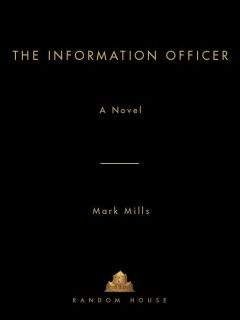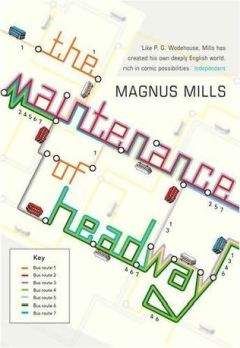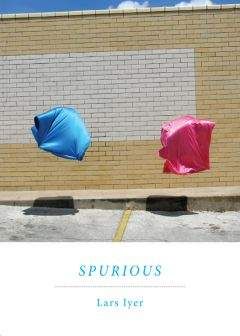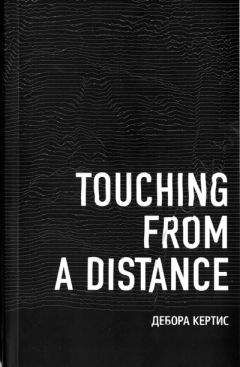Mark Mills - Amagansett
На электронном книжном портале my-library.info можно читать бесплатно книги онлайн без регистрации, в том числе Mark Mills - Amagansett. Жанр: Прочее издательство неизвестно, год 2004. В онлайн доступе вы получите полную версию книги с кратким содержанием для ознакомления, сможете читать аннотацию к книге (предисловие), увидеть рецензии тех, кто произведение уже прочитал и их экспертное мнение о прочитанном.
Кроме того, в библиотеке онлайн my-library.info вы найдете много новинок, которые заслуживают вашего внимания.
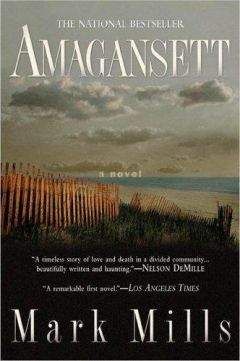
Mark Mills - Amagansett краткое содержание
Amagansett читать онлайн бесплатно
They hooked the keg aboard and dragged the swordfish up from the depths. It had no fight left in it; in fact, no life at all. It had expired from the wound Conrad had inflicted. It was best to be sure, though. Taking up the lance, he turned to the girls.
‘You might want to turn away.’
But they didn’t, and he thrust the lance into the gills. They fastened a strap round the tail and hoisted the fish inboard using a block and fall, laying it on the deck.
Everyone stared in mute wonder at the beauty and the enormity of the creature.
The Senator ran the toe of his shoe along the sword. ‘My God.’
‘Are you still game?’ asked Conrad.
‘Are you joking?’
Conrad turned to Manfred Wallace. ‘You want to tend the warp and keg for the Senator?’
‘Sure.’
It was another ten minutes—time enough to cut out the lily and recoil the line—before Rollo hollered from the masthead, ‘Fish on the lee beam!’
There were two of them, finning close together this time. Keeping the sun at their backs meant coming at them head-on. Conrad accompanied the Senator to the end of the pulpit and handed him the harpoon.
‘They may flare off at the last second, but you’ll still get a shot. Here…’ He adjusted the Senator’s grip on the pole. ‘Remember, just behind the dorsal fin else you’ll bone the dart. And don’t look them in the eye.’
‘Why not?’
‘They’ll freeze you with their stare.’
‘Really?’
‘Trust me.’
The Senator nodded gravely and Conrad made his way back to the stem of the boat where the others were gathered.
‘Good luck, Pappy!’ called the Senator’s daughter, all a-fluster.
Conrad wandered aft, picked up an ax, then returned to the foredeck. He let the ax hang inconspicuously against his thigh.
What the Senator lacked in style he more than made up for in determination. He almost disappeared over the pulpit rail in his bid to stick the fish, but it was a clean hit.
‘I got him!’ he yelled in triumph, raising the harpoon high above his head.
The swordfish took off at a breathtaking clip, heading directly astern of the boat. Conrad couldn’t have asked for more. Everyone turned instinctively to observe its passage, including Manfred Wallace, which meant he took his eyes off the tub.
Conrad glanced down at it, the manila line hissing out, the wooden rim starting to smoke.
‘The keg!’ he shouted, when he judged it was just too late.
To Manfred’s credit, he didn’t freeze. Spinning back, he lunged at the keg, only to see it snatched from his fingertips.
It flew across the foredeck, upending Penrose senior and scattering the others, before crashing into the starboard rail, ripping out one whole section as it continued its journey aft. Conrad leapt forward, swinging the ax, severing the line.
Chase hauled back on the throttle lever. ‘You stupid sonofabitch!’ he yelled. ‘The one thing you had to do—toss the goddamn keg!’
‘I—’ stammered Manfred.
‘No excuses,’ said Conrad. ‘You screwed up.’
Manfred turned his gaze on him, and for the briefest of moments, deep in his crystalline eyes, Conrad caught a glimmer of what Manfred was capable of.
‘Look at my goddamn boat!’
‘We’ll cover it,’ said George Wallace. ‘Whatever it costs.’
‘Damn right you will,’ said Chase, beginning to soften, the prospect of padding out the costs already dampening his anger.
Mr Penrose was helped to his feet. He hopped around and rubbed his shin and declared himself to be okay. The Senator looked far from okay.
‘Did I stick her right?’ he asked Conrad.
‘You stuck her right.’
‘I’d have had her.’
‘Oh, you’d have had her.’
Manfred Wallace felt the full force of the Senator’s glare. Assuming, as you certainly could, that the Senator had grossly exaggerated the size of the North Carolina bluefin that got away, then he’d just lost the biggest fish of his life, and through no fault of his own.
Only when he caught Rollo looking at him did Conrad realize he was wearing an expression of deep satisfaction. He didn’t care that Rollo had seen him laid bare. He didn’t care that someone could have been far more seriously injured by the keg, or that somewhere out there a four-hundred-pound swordfish was being driven mad with the agony of a bronze dart buried in its back. He didn’t care, because he knew this was as close as he was ever likely to come to witnessing the humiliation of Manfred Wallace.
It was a dismal end to a perfect day for the Wallaces and their guests. As the Zephyr pressed towards home the conversation was muted, with Gayle doing her best to lighten the mood. Manfred was silent, suitably chastened, and by the time they reached the breakwaters at Montauk Harbor he’d been forgiven.
The Senator mock-punched him on the jaw and laughed as he recalled the spectacle of Penrose senior going ass-over-elbow. The swordfish might have given him the slip, but he had a far more entertaining tale to tell because of it, and that realization was just beginning to dawn on him.
The late-afternoon buzz at the Montauk Yacht Club swept aside the last vestiges of the incident, the dockside thronging with people eager to view the catches of the returning boats. Their swordfish was hoisted on to the scales at the end of the dock. At four hundred and forty pounds it wasn’t large enough to cause a real stir, but the number of tuna they’d hooked, stacked up on the dock like so much cordwood, was impressive by any standards. It made Chase look good, it made his party look good, and the moment was trapped for posterity by a photographer.
Conrad cleaned and dressed a couple of tuna and packed them in ice for the Wallaces. The rest were sold to the same buyer who took the swordfish off Chase’s hands.
Manfred announced he was off to phone home, to let the drivers know they were back. Conrad slipped away, tailing him towards the clubhouse.
‘There’s the extra hundred for the swordfishing,’ he called.
Manfred stopped and turned. ‘I thought I’d just add it to the cost of the repairs.’
‘I’ll take it now, if that’s okay with you.’
It was twice as much as he’d promised Chase, but he doubted any tips would be forthcoming after what he was about to say. He didn’t care for himself, but there was no reason Rollo should be denied his dues.
Manfred handed him the cash, and Conrad stuffed it into his hip pocket without looking at it.
‘Whose idea was it?’
‘Excuse me?’ said Manfred.
‘Going fishing, your sister still warm in her grave.’
Manfred didn’t respond immediately, unsure if he had heard correctly. ‘How dare you,’ he flared.
Conrad took a step towards him.
‘I know about Lizzie Jencks.’
Manfred recovered quickly, but not quickly enough. His eyes had betrayed him.
‘Lizzie who?’
‘And that’s not all I know.’
‘I have absolutely no idea what you’re talking about,’ said Manfred with way too much indignation.
Conrad smiled. ‘I’ll be seeing you.’
He stood his ground, obliging Manfred to walk away first. But he didn’t.
‘Who the hell do you think you are, hurling accusations around?’
‘Accusations?’ said Conrad. ‘I thought you’d never heard of Lizzie Jencks.’
Twenty-Two
Hollis had been trying his hardest to appear interested, so he was a little surprised when Mary said, ‘You don’t seem very interested.’
‘Don’t I? Maybe it’s the blisters.’
‘The blisters?’
‘I have a few.’
It was an understatement; his heels and toes were rubbed raw. This was due in part to the old pair of walking boots she’d lent him, her ex-husband’s feet being a good couple of sizes larger than his own. Mainly, though, it was because of the considerable distances they’d covered since their dawn departure. He had never walked so far in one day, not since a tramping trip in the Catskills with the Brooklyn Boy Scouts many years before. On that occasion the heat had been bearable, the terrain forgiving, and they’d had the roving hands of a buck-toothed scoutmaster to spur them onwards.
Mary, he’d soon discovered, was a keen believer in treading the thorny path. Without so much as a word of warning she would leave the trails that threaded the oak woods north of town, striking out through the brush and briars over uneven ground deliberately designed to turn an ankle. He’d had little choice but to follow. The treasures she sought were only to be found deep in the woods.
She showed him square indentations in the forest floor—the cellar holes of dwellings abandoned centuries before. She pointed out large flat stones buried in the undergrowth, etched with initials, that had once served as boundary markers for these early homesteads. And as they weaved through the oak, hickory, maple and birch, she drew his attention to clusters of pear and apple trees, gnarled and wretched—the vestiges of orchards considerably older than the trees that now towered around them.
She explained that at one time the early settlers had so denuded this rolling landscape that they’d been forced to drive their cattle and sheep into the kettle holes whenever the English ships appeared off the coast looking to re-stock. The East End, she said, was pockmarked with these deep depressions, footprints of the vast blocks of ice left behind by the glacier when it retreated. She insisted on making a detour to show him one such hollow, its steep sides descending to a sun-dappled pool, the water clear yet somehow black as pitch. And he imagined the farmers cowering there with their beasts, safe from the hungry eyes of the enemy, their former countrymen.
She showed him the graves of those early herders, small family burial plots reclaimed by the forest, the bones of the dead woven through with the roots of the same trees that had dislodged and toppled the weathered headstones. The names, eroded by time, had been destined for obscurity until Mary came along and recorded them, clearing off the lichen, taking rubbings with wax crayons, pulling out on to rice paper names no longer discernible to the human eye.
Some were names that hadn’t survived the years, the male lines cut short at some juncture, although some part of their blood still flowed in the veins of the living, trickling down through the generations via the womenfolk, mingling through intermarriage, surviving in everything but name.
Mary wasn’t a Calder; her husband was a Calder—from Scotland via Madison, Wisconsin—and he was new to the East End of Long Island. Or rather he had been until he left. Mary was a Northfleet, a family to be reckoned with in and around East Hampton ever since Samuel Norfleete first showed up on the scene from England. And just as Mary could trace her descent right back to the very earliest days of settlement, so they now retraced the footsteps first taken by her ancestor as he headed through the North Woods in search of an inlet or cove with a deep enough draft to accommodate the seagoing vessels that would transport his lumber, cattle and tanned hides to new and lucrative markets. He found the ideal spot at what was now called Northwest Landing, and he became wealthy on the back of the venture, though you wouldn’t have known it to look at the place almost three centuries on. All that remained of the warehouse and the wharf he had built was a handful of blackened stumps poking through the mud of the silted-up little creek, barely visible through the murky water.
It was while he was peering at these few pathetic remnants of the wharf pilings that Mary said to him, ‘You don’t seem very interested.’
It wasn’t the blisters, not if he was honest. And it wasn’t that he was bored. He had enjoyed listening to her stories of days gone by, even if she did have a tendency to talk with earnest, almost irritating, enthusiasm at times. It wasn’t even that her tales of hardy pioneers hacking out a life for themselves unsettled him—the noble clans of farmers and fishermen with their ancient lineages and deep-rooted traditions, wedded to the land and the ocean. It didn’t bother him that he knew almost nothing of his own heritage, except that he sprang from an undistinguished jumble of different races and religious creeds. There was a German great-something (or was it a great-great-something?) who had worked as a stonecutter in the granite quarries of Vermont, and a Danish wet-nurse, then some whispers of Jewish blood on his mother’s side, topped off with a large shot of Brooklyn Irish and a dash of Jesuit French.
No pure pedigree for him. He was a mongrel, genuine homegrown fare, and there seemed no reason to deny it or be embarrassed by it. For all their lofty claims, people were people. Even here in East Hampton, with their time-honored bloodlines, they would still have their share of bastards and backroom abortions and cuckolded husbands blithely bouncing other men’s children on their knees.
No, if Mary sensed a certain distraction in him it was because it was five o’clock on a Saturday—weekend cocktail hour—and by his calculation they had another hour and a half’s walking ahead of them before they reached their destination.
He was wrong.
Some unseen clock was striking eight as they crossed the bridge spanning the creek in Springs. This was the heart of the little community, though you wouldn’t have known it to look at the place. There was no Main Street as such, just a couple of road junctions, an open expanse of land bisected by a creek, and a few isolated buildings, randomly placed, as if someone had blindfolded a founding father and asked him to stick pins in a map. There was a church here, a schoolhouse over there, a barn, a hall, and a lone store on the south side of the bridge, in front of which a group of local men was now gathered, chewing the fat. Mary greeted a couple of them as they passed by.
Beyond the store, a blind lane led down to the edge of Accabonac Harbor and what appeared to be an abandoned boatyard. Closer inspection revealed a few desultory signs of activity—a small rowboat upturned on wooden stays and half painted, an outboard motor stripped down to its component parts, a torn fishing net in the process of being repaired.
Across the yard, on the shore of the creek, stood a small shack, the water lapping at the base of the veranda. An old man was seated in a spring-rocker examining a small round object between his thumb and forefinger.
‘Joe.’
He turned and his furrowed face cracked a smile. ‘Mary. And with a beau in tow.’
‘Just a friend,’ said Mary, stooping to kiss him on the cheek.
‘If you say so.’ He eased himself to his feet, extending a crooked and calloused paw. ‘Joe Milne.’
‘Tom Hollis.’
‘What’s that?’ asked Mary.
Joe handed her the small ball. ‘You tell me.’
She turned it in her fingers. ‘I don’t know,’ she conceded, handing it on to Hollis. It was hard and textured.
‘Flo Barratt back in the woods there, she’s got her an army of cats, that old heifer, scores of the damn things runnin’ all over, pissin’ on the couch and all sorts. Some of ‘em’s gone missing of late. Now I know why.’ He paused. ‘It’s a fur ball out of that greathorned owl I keep for huntin’ crows.’
Похожие книги на "Amagansett", Mark Mills
Mark Mills читать все книги автора по порядку
Mark Mills - все книги автора в одном месте читать по порядку полные версии на сайте онлайн библиотеки My-Library.Info.
